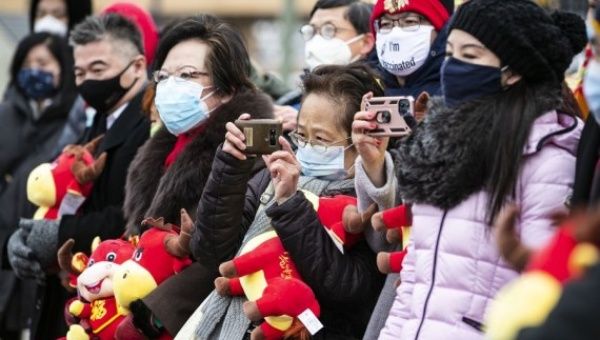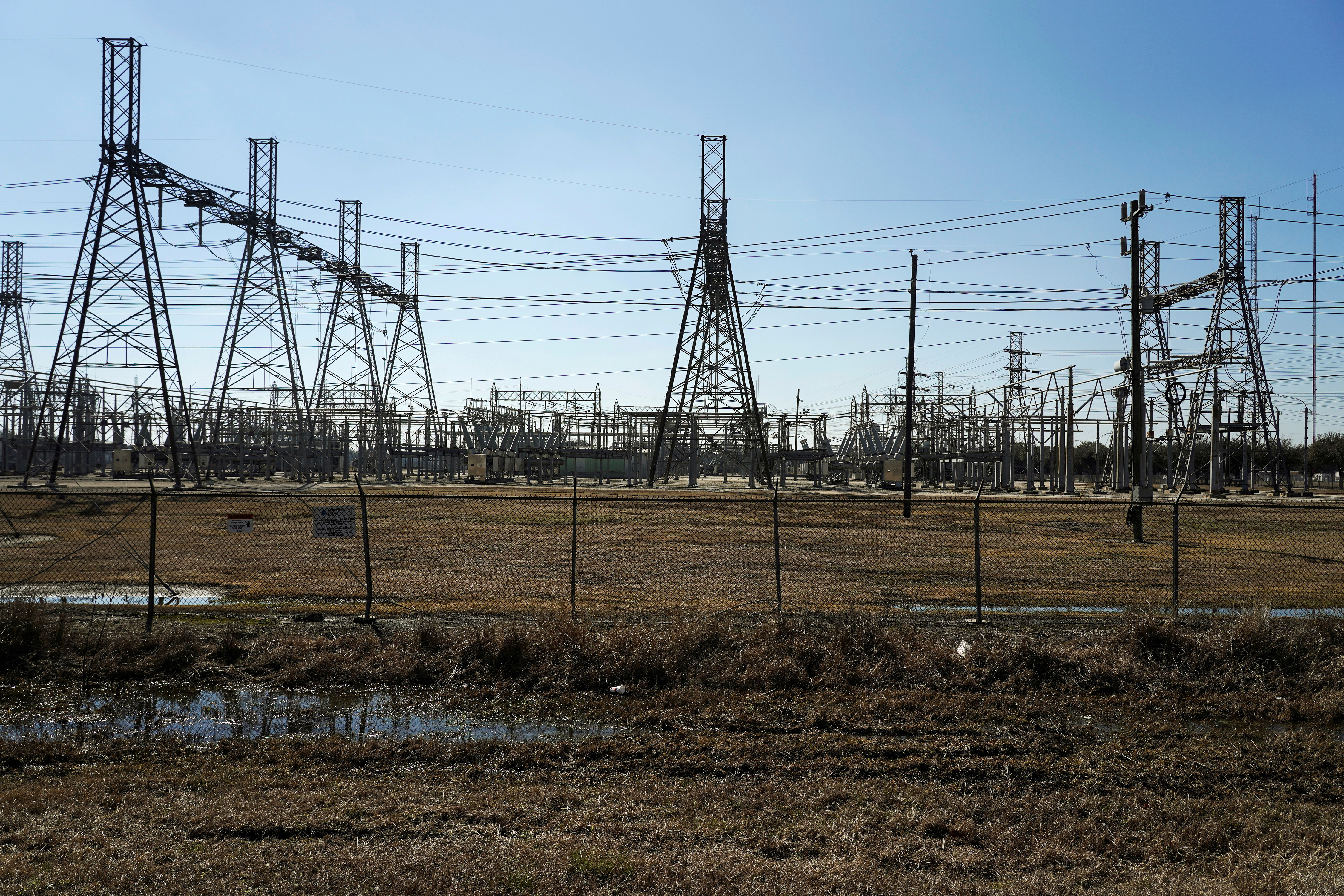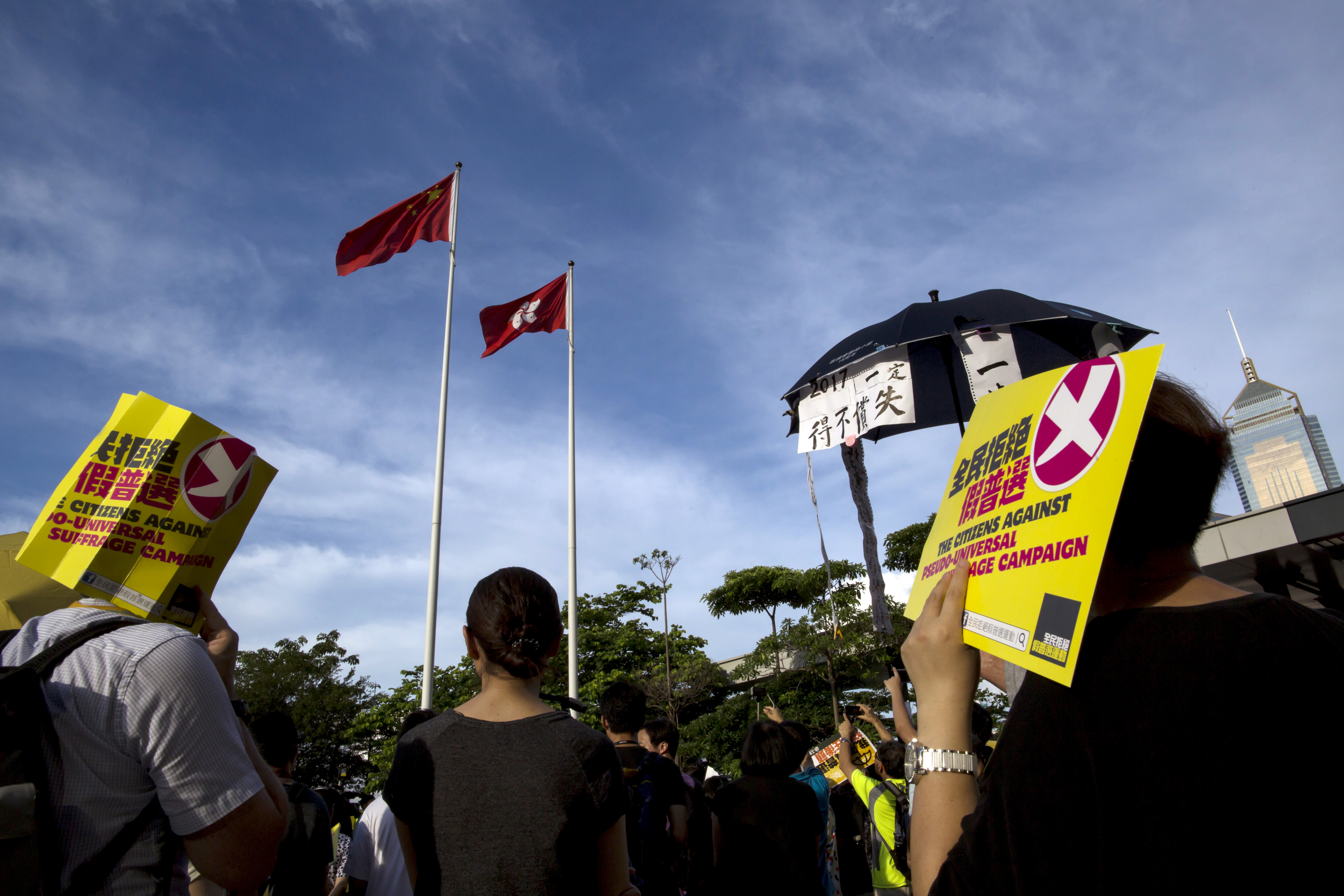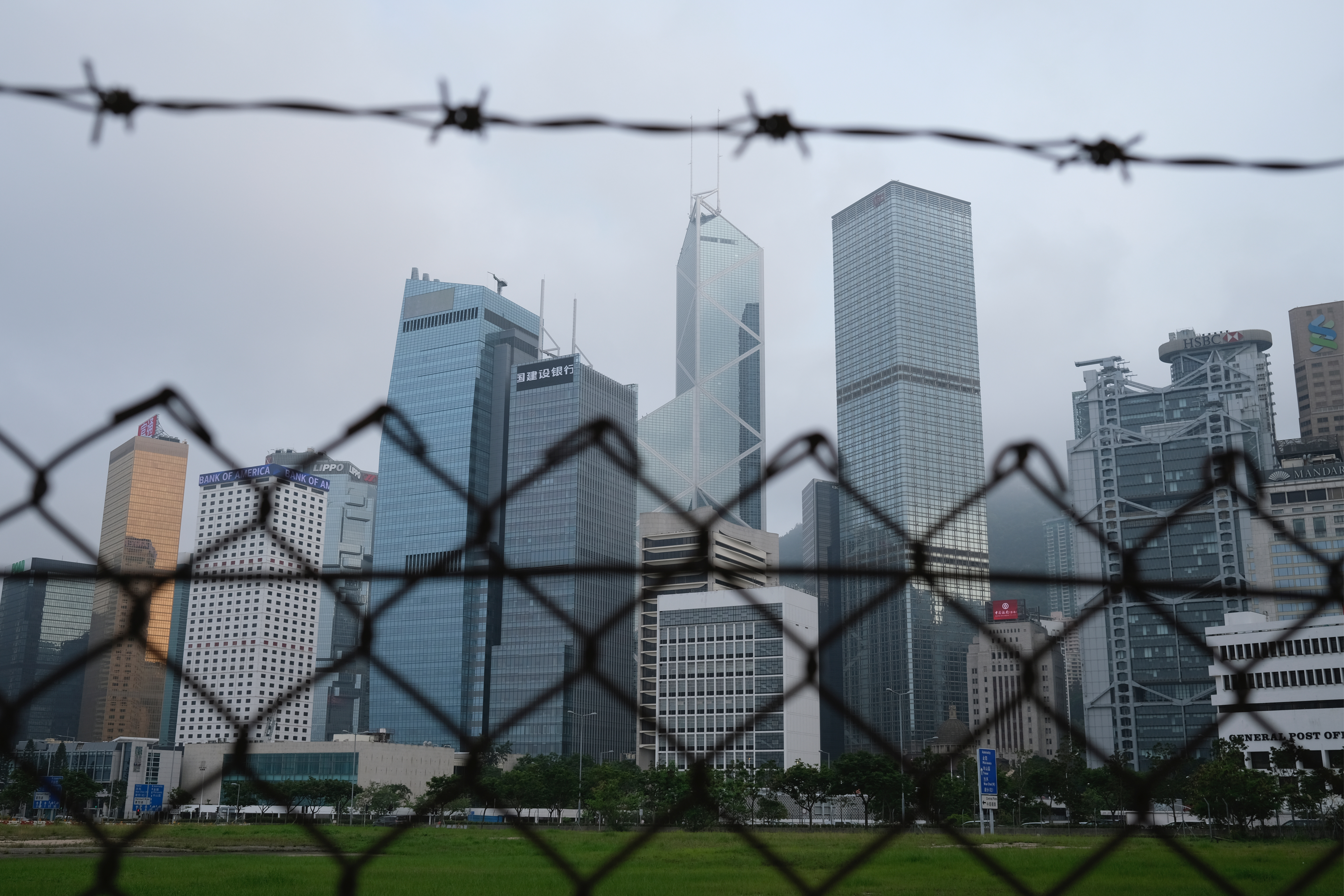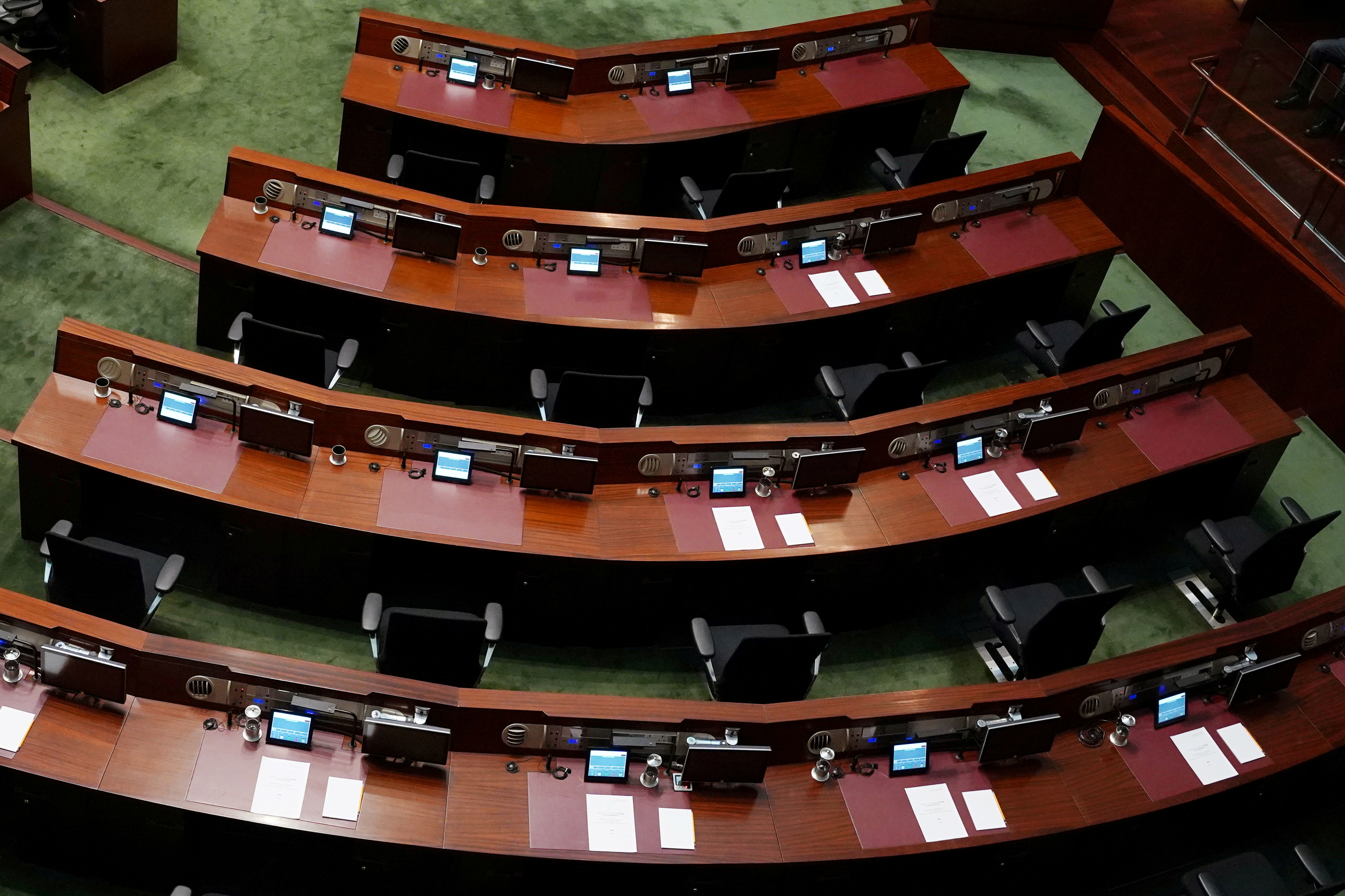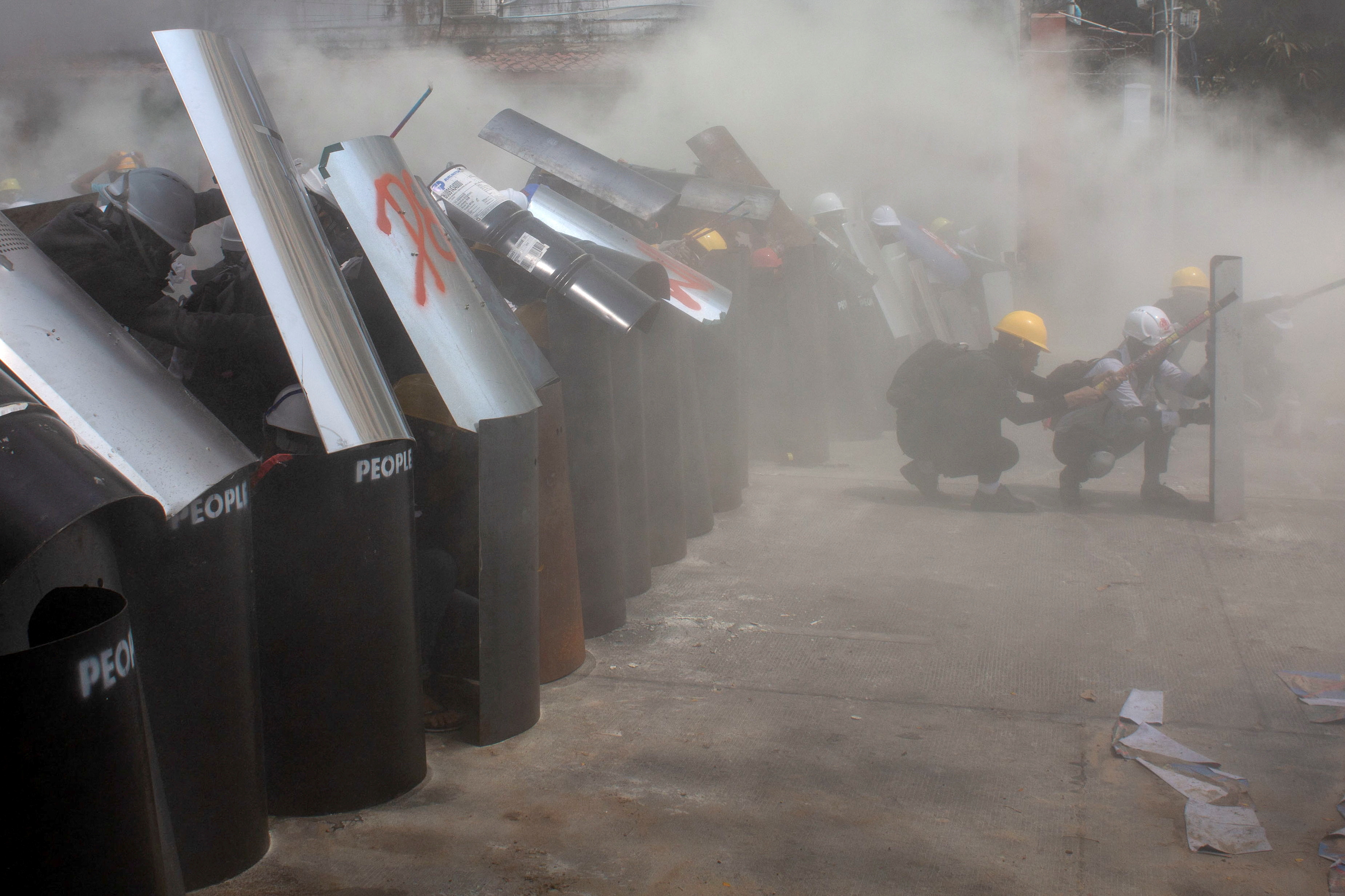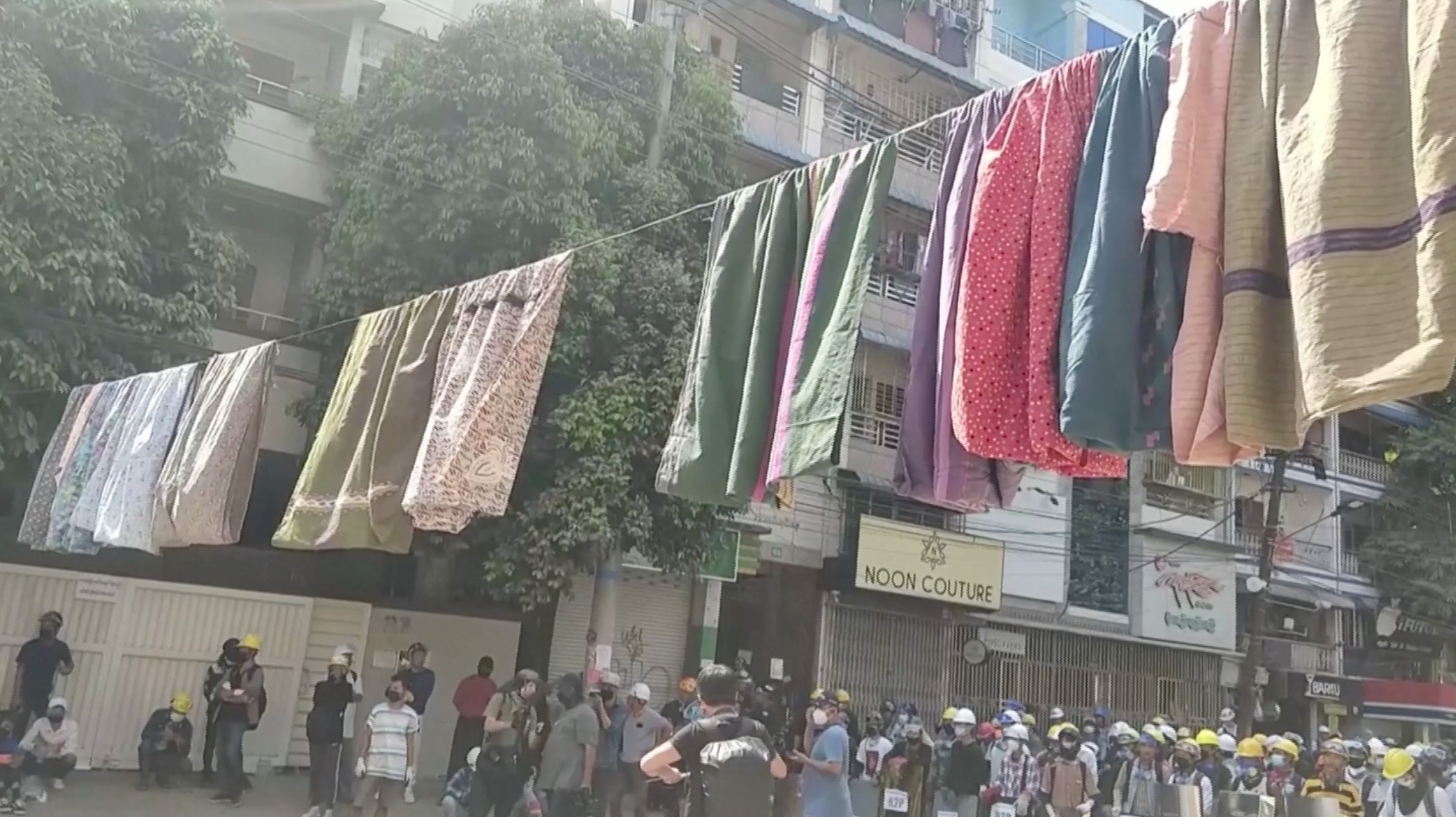Robyn Pennacchia
Tucker Carlson's entire job, his entire purpose, is to scare white Republicans. He tells them Antifa and Black Lives Matter and sex-crazed pandas are coming for them, their precious Dr. Suess books and their very way of life, that they are constantly on the verge of being systemically oppressed by whichever group he is currently frightened of, that trans people are going to walk around public bathrooms naked, that little old ladies conspired to steal the election from poor Donald Trump by pretending to be their dead husbands, that lockdowns are coming for their sperms, that they are going to be cancel cultured just for saying extremely bigoted things, that Elmo is going to tell their white children that they are personally responsible for all that is bad in America, etc. etc. etc. We'd be here all day if I went on.
But, naturally, because Carlson is big on projecting, he did a whole segment last night on how actually it is the Left who are afraid of everything! Especially silly things like armed insurrections and kidnappings!
Transcript via Media Matters:
And a lot of liberals were certain that today — this day, March 4 — was the day the right wing revolution would finally begin. March 4, they believed, was something called "QAnon Inauguration Day."
What's "QAnon Inauguration Day"? We have no idea. We don't know anyone who does know. In fact, we'd bet money that not one Trump voter in a million had ever heard of it until this week when the hysteria emergence on the other channels started yapping about it on television.
They'd heard about it from Nancy Pelosi who told her bodyguards to write up a report on the threat of "QAnon Inauguration Day." So, that's what they did.
Here's the excerpt from the bulletin put out by the top minds at DHS and the FBI.
"An unidentified group of militia, violent extremists has discussed plans to take control of the U.S. Capitol on or about 4 March." Today.
Well, that sounds pretty scary. Another white supremacist insurrection? But, wait a second. Can we get some context — who exactly are these unidentified violent extremists?
So, as we know, Tucker Carlson does not believe in QAnon. This is not to say that he doesn't believe in what the QAnon people believe ... but that those people do not exist in the first place. There was never any person calling themselves Q and posting coded missives to 4chan, no throngs of Trump supporters hanging on their every word and devoting their lives to decoding said missives, believing that Donald Trump was on a secret mission to take down the Satanic pedophile cabals or hoping to get to see every Democrat and every celebrity in Hollywood hauled out of their homes, tried by military tribunals for all of their crimes, and then executed on live TV. It was all something people like me made up in order to make Trump supporters look crazy. Because, you know, that's a thing we have to put effort into.
For what it's worth, we actually do know what the deal was supposed to be with "QAnon Inauguration Day." Some QAnon people and some sovereign citizens had a crossover episode and came up with the theory that Trump was going to be inaugurated for a second term on March 4.
As I explained in February:
Many of them are still holding strong, mostly to the belief that Trump will be inaugurated on March 4th as the 19th REAL President of the United States, because they now think every president since Grant (including Trump, we guess) was illegitimate. It is some sovereign citizen crap where they think the US was made a corporation after that, and so therefore everything since then has been about the US as a corporation and not as a country. More than likely, they'll all be spelling their names in all caps and trying to access their strawman bank accounts any day now.
So far, they haven't been particularly clear on how that's gonna go — although many of them have been booking hotel rooms for March 4, hoping to be witnesses to this glorious event. So many, in fact, that the Trump hotel in DC has jacked up prices to $1745 a room. Because hey! If you can't profit off all of the people you've psychologically damaged for life, then what is the point of anything?
Yeah.
So, the last time a bunch of Trumpists planned a coup on the internet, they followed through with it. People died. Others were severely injured. Many will be going to prison for decades. And Fox News talking heads demanded to know "What did Nancy Pelosi know and when did she know it?" — suggesting that because she had the same information everyone else had, that Trump supporters were planning "something" for January 6, that she irresponsibly just let the Capitol riots happen because she wanted Trump supporters to look bad. So this time, armed with exactly the same information that everyone else who reads the news has, Pelosi simply suggested that perhaps it ought to be taken seriously. Woah, if true.
The real kicker, however, comes at the end where Carlson LOLs at law enforcement having taken the plot by "that homeless guy" (about eight militia members with access to some pretty serious weaponry) to kidnap Gretchen Whitmer:
And is the threat they pose more or less dangerous, for instance, than the plot by that homeless guy to kidnap the Governor of Michigan? The plot the FBI foiled just in time before a platoon of rightwing vagrants could abduct Gretchen Whitmer in a shopping cart. We never really learned any details.
"We" actually did learn a lot of details, but it seems like the crack minds at "Tucker Carlson Tonight" who couldn't find the QAnon website also did not have the necessary Googling skills to figure that out.
The thing is, we actually have pretty good reason to be scared of rightwing extremism, because rightwing extremists kill people on a fairly regular basis. The Left, as desperately as Tucker Carlson may want to believe we do, does not. It is understandable that he may find that unfair, that he would prefer the FBI and everyone else pay no attention to the domestic terrorism behind the curtain, but given that rightwing extremists have killed over 330 people since September 11, 2001, (while leftwing groups have killed zero), we can't do that. Even if it really, really hurts Tucker Carlson's precious narrative.
[Media Matters]
THE WONKETTE
